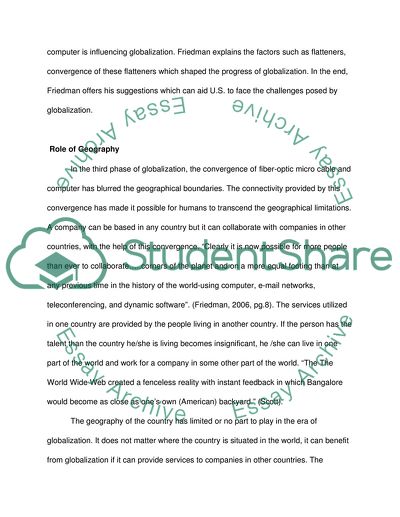Cite this document
(The World is Flat: A brief History of the Twenty - First Century by Book Report/Review, n.d.)
The World is Flat: A brief History of the Twenty - First Century by Book Report/Review. Retrieved from https://studentshare.org/social-science/1549623-the-world-is-flat-a-brief-history-of-the-twenty-first-century-by-thomas-l-friedman-book-report
The World is Flat: A brief History of the Twenty - First Century by Book Report/Review. Retrieved from https://studentshare.org/social-science/1549623-the-world-is-flat-a-brief-history-of-the-twenty-first-century-by-thomas-l-friedman-book-report
(The World Is Flat: A Brief History of the Twenty - First Century by Book Report/Review)
The World Is Flat: A Brief History of the Twenty - First Century by Book Report/Review. https://studentshare.org/social-science/1549623-the-world-is-flat-a-brief-history-of-the-twenty-first-century-by-thomas-l-friedman-book-report.
The World Is Flat: A Brief History of the Twenty - First Century by Book Report/Review. https://studentshare.org/social-science/1549623-the-world-is-flat-a-brief-history-of-the-twenty-first-century-by-thomas-l-friedman-book-report.
“The World Is Flat: A Brief History of the Twenty - First Century by Book Report/Review”, n.d. https://studentshare.org/social-science/1549623-the-world-is-flat-a-brief-history-of-the-twenty-first-century-by-thomas-l-friedman-book-report.


